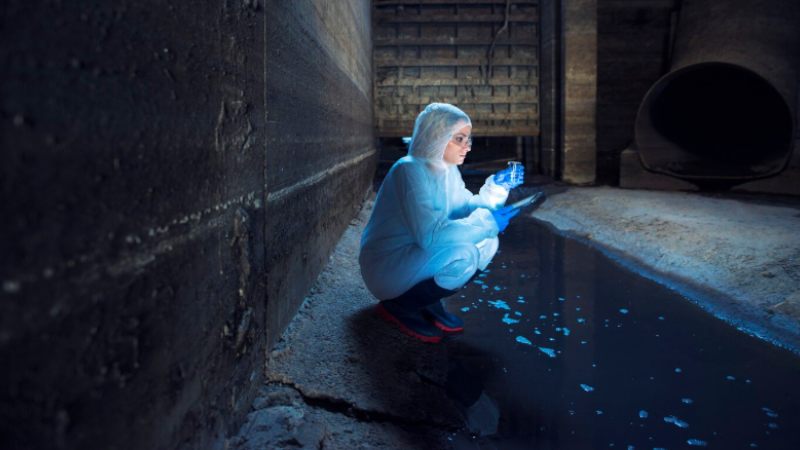Erosion control is a critical aspect in the preservation of coastlines, waterways, and infrastructure. It seeks to combat the natural and anthropogenic processes that lead to the degradation of soil and rock formations. Foundries play an underappreciated yet essential role in such environmental protection efforts. They provide robust materials that underpin structures designed to mitigate the damaging effects of water and wind erosion. By manufacturing custom components for use in a variety of coastal and marine applications, foundries are instrumental in supporting sustainable erosion control projects.
Foundries as Suppliers of Critical Infrastructure Components
One of the primary functions of foundries within erosion control is their ability to supply tailor-made, durable metal castings. FC Casting Solutions exemplifies a provider of such materials, producing high-quality castings that fit the specific requirements of erosion control structures. Foundries must ensure their products can withstand the harsh conditions they will face, including saltwater corrosion, strong currents, and continuous abrasion from sediment and debris.
The Importance of Custom Steel Castings
Steel castings from foundries are often employed in the construction of barriers, groynes, seawalls, and other shoreline stabilisation devices. Their strength and versatility make them ideal for withstanding the forces exerted by bodies of water. Erosion control projects can have some of the most demanding conditions for materials; thus, customisation is frequently a necessity. The fastest custom steel casting solutions in the marine industry can adeptly keep pace with the urgent demand for accelerated construction and maintenance of erosion control systems.
Moreover, the speed at which foundries can produce custom solutions is of great importance. Erosion can occur rapidly and unpredictably, necessitating immediate response to prevent further environmental damage or loss of existing infrastructure. Being able to quickly acquire the necessary components, tailor-made for the specific application, allows for efficient project deployment.
Versatility in Foundry Productions
Foundries have evolved to offer a wide variety of castings in different metals and alloys, enabling them to meet varied design specifications for erosion control projects. Not only do these castings need to be strong, but they also must be compatible with the local environment to minimise any potential ecological disruption. Custom solutions ensure that the balance between functionality and environmental sustainability is maintained.
Through innovative techniques, foundries can reduce waste and enhance the durability of their products. For example, they utilise advanced metallurgical processes to improve the corrosion resistance of steel components, extending their lifespan even when deployed in challenging marine environments.
Engineered Casting Solutions for Specific Needs
To address the unique challenges that come with controlling erosion, particularly in coastal areas, foundries offer engineered casting solutions for coastal projects. These casting solutions must be adapted to the geography, wave dynamics, and sediment characteristics of the project location. The adaptability of foundries in the production process is crucial to creating the most effective and long-lasting erosion control systems.
Engineered castings are not just about conforming to an erosion control project’s physical requirements; they also represent an integration of design and function. The precise engineering involved in the creation of these components ensures optimal performance under the specific stresses encountered in coastal environments.
By working closely with engineers and project managers, foundries like FC Casting Solutions ensure that the specifications of the engineered casting solutions are aligned with the overall design objectives of erosion control projects, ensuring both structural integrity and cost-effectiveness.
Advancements in the Foundry Industry
Technological advancements have expanded the capabilities of foundries, allowing them to produce more complex and precise castings than ever before. Computer-aided design (CAD) and computer-aided manufacturing (CAM) have streamlined the production process, from concept to casting to deployment. These technologies ensure high-quality components are delivered for critical infrastructure in erosion control.
Furthermore, sustainability in the foundry industry has become a priority. Incorporating environmentally friendly practices in the casting process helps to reduce the ecological impact of producing erosion control components. Foundries are increasingly making use of recycled materials and striving towards zero-emission production methods.
Collaboration is Key
Foundries help in erosion control by working with experts like scientists and engineers. This teamwork ensures solutions are effective and eco-friendly.
Collaboration also extends to the communities affected by erosion control projects. Foundries must often engage with local stakeholders to ensure that their solutions not only protect infrastructure but also preserve the natural landscape and support local ecosystems.
Conclusion
As guardians of land and property against the unrelenting forces of nature, foundries play an indispensable role in erosion control projects. By providing custom, engineered casting solutions, companies like FC Casting Solutions deliver the critical infrastructure needed to combat erosion. Foundries, with their skill, flexibility, and focus on sustainability, play a key role in protecting coastlines and waterways. As erosion challenges grow, the foundry industry will keep adapting and creating solutions for a stronger, safer future.

